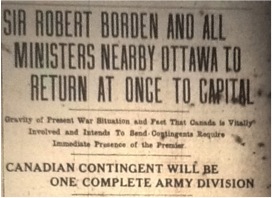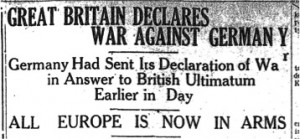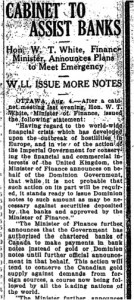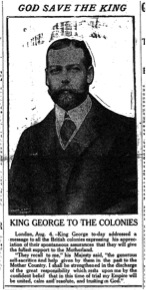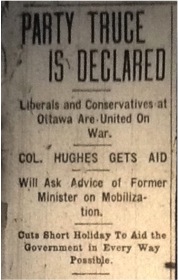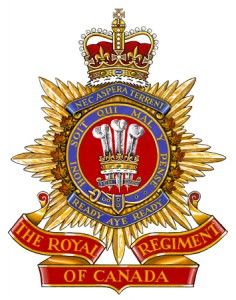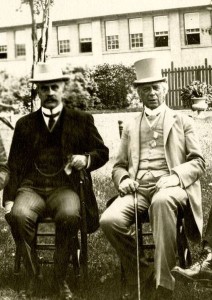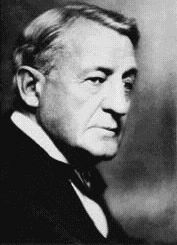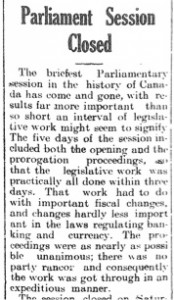When tensions began to rise in Europe, Canada’s Parliament was not in session and most politicians were away on vacation. As the situation worsened, Prime Minister Borden and other leading politicians made their way back to Ottawa. On the morning of 1 August, Borden arrived back at Parliament Hill. Other leading figures, such as Colonel Samuel Hughes, the Minster of the Militia, were expected to arrive later that day.
A Cabinet meeting was held to discuss what steps needed to be taken to prepare Canada for the possibility of war. If Great Britain declared war, Canada would automatically be at war as well due to their colonial status. It was believed at this point that the first troops that would be called on would be the permanent forces, including the Royal Canadian Engineers and the Royal Canadian Artillery.
(“Canada Will Send Regiment to Front,” Berlin Daily-Telegraph, 1 August 1914; “Photo Origin: London Free Press, 1 August 1914.”)
